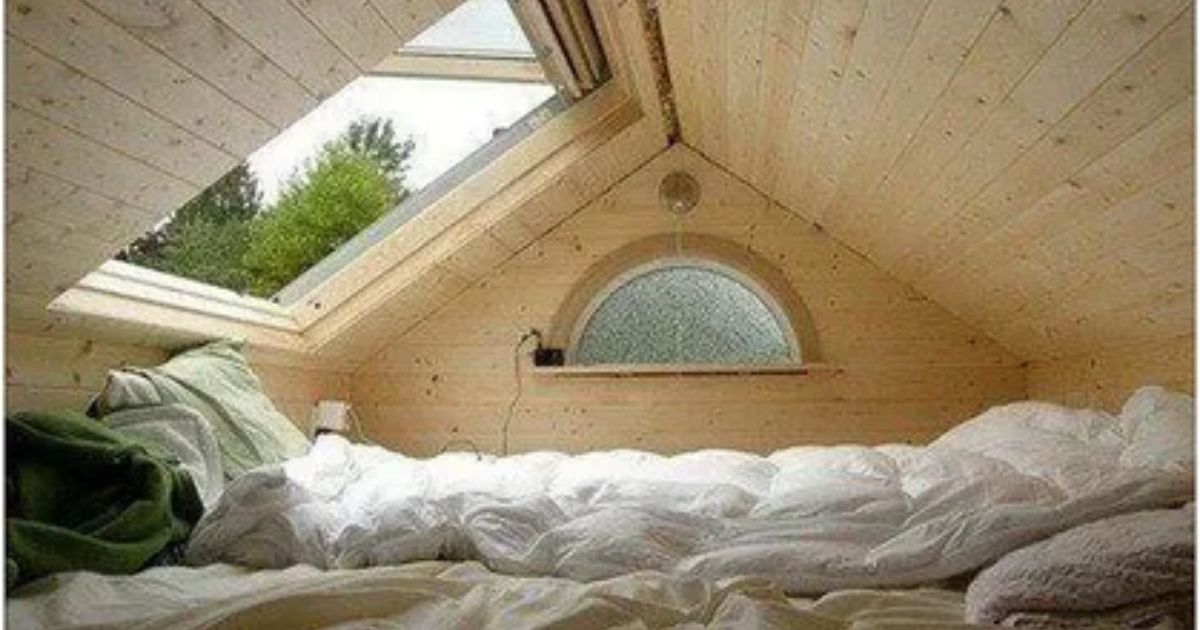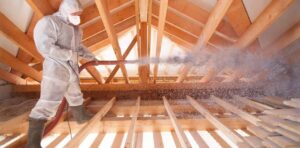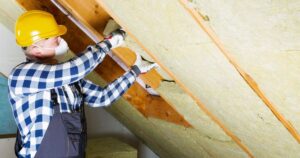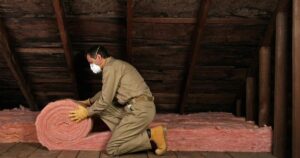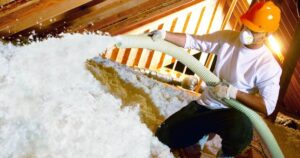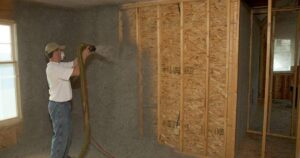If you’re looking for an effective way to keep your home cooler during scorching summers and toasty warm during chilly winters, you’re in the right place. Insulating your attic is a home improvement project that can offer several benefits, including energy efficiency, cost savings, and enhanced comfort.
In this article, we’ll delve into the world of attic insulation, exploring how it can help regulate your indoor temperatures and whether it’s a worthwhile investment for your home.
During the summer, it keeps the scorching heat from infiltrating your home, and during the winter, it retains the warmth inside. This insulation essentially acts as your home’s thermal armor, helping you maintain a comfortable indoor temperature.
What Does Attic Insulation Do?
To understand how insulating your attic can help keep your house cooler, it’s crucial to grasp the basics of what attic insulation does. Attic insulation serves as a barrier that prevents heat transfer between your living space and the outside environment.
Heat naturally flows from warmer areas to cooler areas. In the summer, when the outside is sweltering, your attic can become an oven without proper insulation. Without insulation, the heat seeps through your roof and into your living spaces, making your air conditioning work overtime.
Types of Attic Insulation
Several types of insulation are available for attics, each with its unique characteristics and benefits. Let’s explore some of the most common options:
1. Fiberglass Insulation
Fiberglass insulation is perhaps the most well-known and widely used type of insulation. It comes in rolls or batts and is known for its affordability and ease of installation. This type of insulation is highly effective at resisting heat transfer.
2. Cellulose Insulation
Cellulose insulation is made from recycled paper products and is an eco-friendly choice. It’s treated to be fire-resistant and can be blown or sprayed into your attic, filling even hard-to-reach areas.
3. Spray Foam Insulation
Spray foam insulation provides an airtight seal, making it incredibly effective at blocking heat transfer. It’s perfect for both insulating and air-sealing your attic. However, it tends to be more expensive than other options.
4. Radiant Barrier
Radiant barrier insulation reflects heat away from your attic. It’s particularly useful in hot climates and can significantly reduce the amount of heat that enters your home.
How Attic Insulation Keeps Your House Cooler
Now that we’ve covered the basics of attic insulation, let’s discuss how it helps keep your house cooler:
1. Reduced Heat Transfer
By creating a barrier between your living space and the outside environment, attic insulation significantly reduces the amount of heat that enters your home. This means that during the summer, your indoor temperature remains cooler and more comfortable.
2. Energy Efficiency
With less heat seeping into your home, your cooling system doesn’t need to work as hard to maintain the desired temperature. This results in lower energy consumption, which translates to cost savings on your utility bills.
3. Consistent Temperature
Attic insulation helps maintain a consistent indoor temperature, preventing fluctuations that can lead to discomfort. You’ll enjoy a cooler home in the summer without dramatic temperature swings.
4. Extended Lifespan of Your Roof
Attic insulation can also benefit your roof by reducing the extreme temperature variations it’s exposed to. This can extend the lifespan of your roofing materials, saving you money in the long run.
FAQ’s
How does attic insulation work to keep my house cooler?
Attic insulation acts as a barrier, reducing heat transfer and keeping your home cooler in the summer.
What types of attic insulation are available?
Common types include fiberglass, cellulose, spray foam, and radiant barrier insulation.
Will insulating my attic help lower my energy bills?
Yes, attic insulation can make your home more energy-efficient, resulting in cost savings.
Conclusion
In conclusion, insulating your attic is a smart investment that can undoubtedly keep your house cooler during the hot summer months. By reducing heat transfer, enhancing energy efficiency, and maintaining a consistent temperature, attic insulation offers multiple advantages. Whether you choose fiberglass, cellulose, spray foam, or a radiant barrier, the benefits are clear.
Your home will be more comfortable, energy-efficient, and cost-effective. So, if you’re looking to enjoy a cooler home and lower energy bills, consider insulating your attic – it’s a decision you won’t regret.

